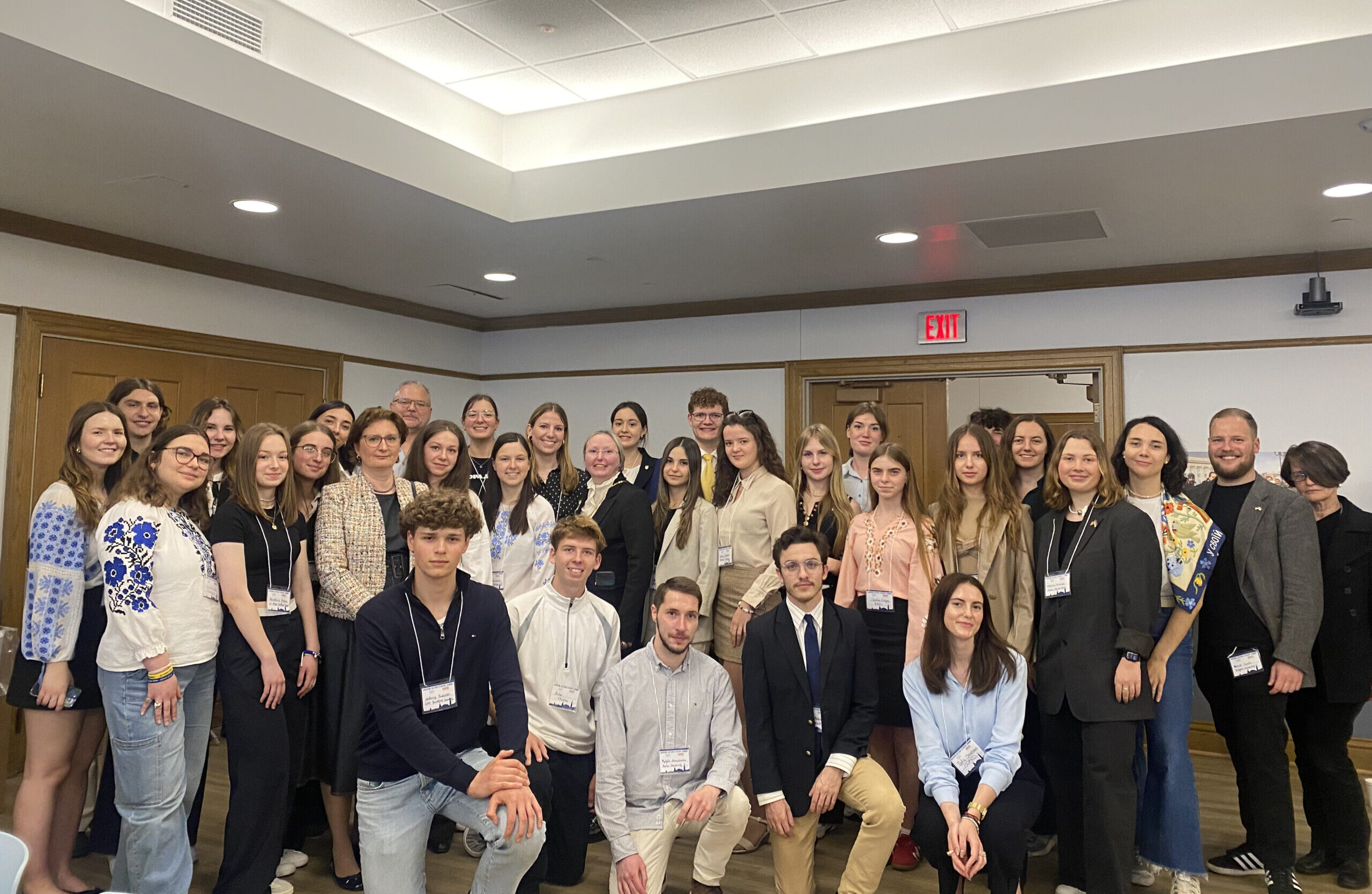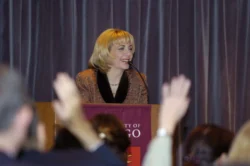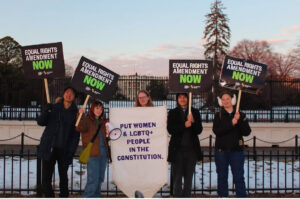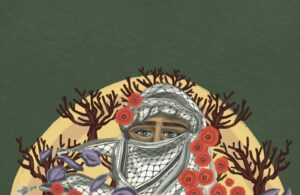The Georgetown University Ukrainian Society (GUUS) welcomed over 40 participants from 18 universities across the country to their second annual Ukraine Action Student Summit on April 5 and 6. The summit, hosted at Georgetown, encouraged students to get involved in advocacy for Ukraine.
“We wanted to unite student advocates from across the country and strengthen the U.S.-Ukrainian relation,” GUUS President Yulia Hustul (SFS ’25) said. “The overall goal is to support Ukraine’s fight for sovereignty and freedom and to develop individual students’ professional, networking, and advocacy skills to build a stronger community for Ukraine.”
Since Feb. 24, 2022, Russia has taken control of over 20% of Ukrainian territory and has killed more than 12,600 Ukrainian civilians. Ceasefire negotiations between Russia and Ukraine continue but have not paused the war.
The summit followed the deadliest single verified strike harming children in the Kryvyi Rih region of Ukraine that killed 20 people, including 9 children, and injured 70 people on April 4. The Russian missile targeted civilian areas, tearing through apartment buildings and a playground.
The GUUS summit’s purpose was to empower students to lobby for a successful ceasefire and achieve justice for Ukraine.
The summit consisted of seven panels with speakers in law, journalism, academia, diplomacy, and activism to introduce students to the work they are doing to aid Ukraine.
“We are trying to show all the different ways that students can be involved,” Hustul said. “Regardless of what your interests are, whether you want to focus on law, academic advocacy, or journalism, you can learn about the ways you can support the causes of Ukraine by amplifying your voice and engaging in a way that is most fitting to you.”
The first panel of the summit, “Defending Ukraine Legally,” welcomed three guest speakers: Marney Cheek, a partner at Covington & Burling, LLP, Andrii Pasichnyk, the legal counselor at the Embassy of Ukraine in the USA, and Ambassador Clint Williamson, lead coordinator of the Atrocity Crimes Advisory Group. Panelists discussed the importance of continued legal support for Ukraine.
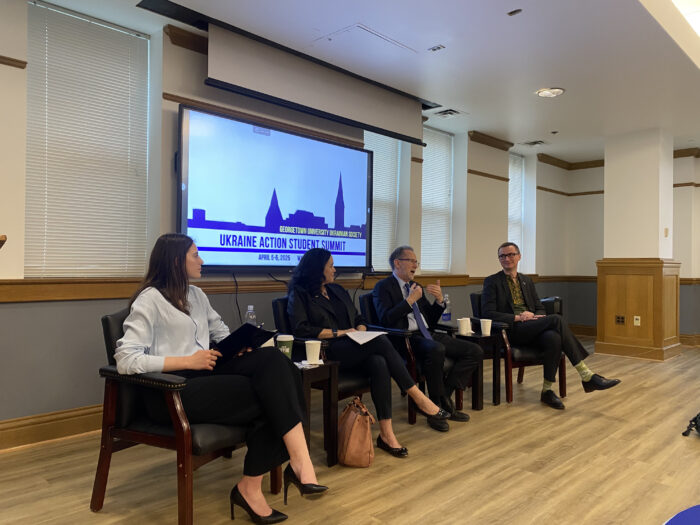 Photo courtesy of the Georgetown University Ukrainian Society
Photo courtesy of the Georgetown University Ukrainian Society
Williamson also works as the Senior Director for International Justice at Georgetown University, which partners with institutions from the U.S., European Union, and the United Kingdom to support Ukraine’s effort to prosecute Russian war crimes. He explained the importance of legal work during the war.
“It’s very important to bring these indictments so that you’re making a record of what has actually occurred in terms of crimes,” Williamson said in an interview with the Voice. “It makes it hard for senior figures to operate on the world stage. It bolsters the case for sanctions against individuals and against the governments that are involved. So there is value in bringing these cases.”
Williamson finds his presence at panels like Georgetown’s Ukraine Action Student Summit important to inspire the next generation of international lawyers who will lead these cases in Ukraine’s domestic courts.
“They’re going to have tens of thousands of cases that will go on for decades,” Williamson said. “Some of the people that were in the audience that are students today might be in a position to work on these things as attorneys five years from now, 10 years from now. This is not going to go away.”
GUUS also led a panel of three journalists, all of whom had experience covering the war on Ukraine in the last three years. Ashley Westerman, the supervising editor, producer, and lead assignments manager for NPR’s Morning Edition, provided her experience as a reporter in Ukraine in 2022.
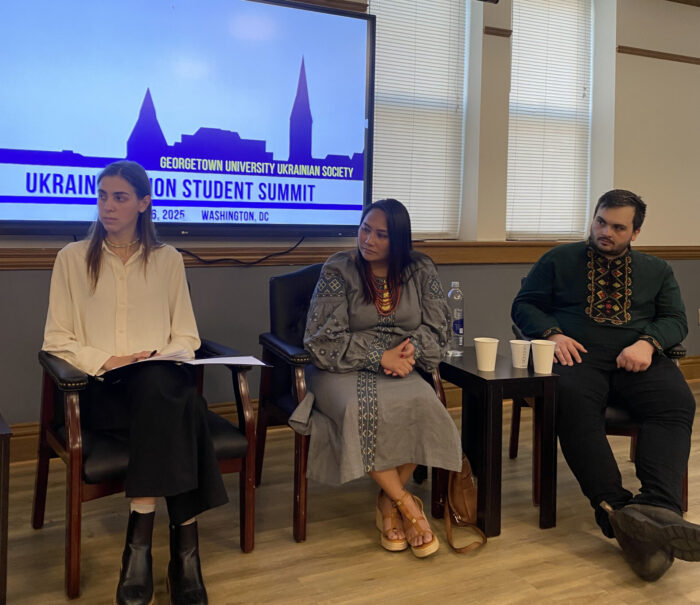 Photo courtesy of the Georgetown University Ukrainian Society
Photo courtesy of the Georgetown University Ukrainian Society
“My coverage on the ground had to do with things away from the front line. It wasn’t about troop movements and what village was taken where, but it was more about life and how Ukrainians were getting along during the conflict,” Westerman said in an interview with the Voice. “That type of journalism is important because it reminds people that there’s still humanity. There are still people who have to live with this. If you don’t have free journalists covering something, then all you’re going to get is the propaganda from whichever entity is strong enough to get their message out.”
The Georgetown Ukraine Action Student Summit was part of a larger advocacy effort by Ukrainians across the country. The American Coalition for Ukraine led 600 delegates from all 50 states in their Ukraine Action Summit this week to organize, rally, and advocate for Ukraine in Congress.
“The summit happens twice a year, and Ukrainian advocates are coming to the capital to advocate for Ukraine in their congressional offices to urge them to support Ukraine or to provide ways to combat propaganda,” Mariia Hlyten, delegation leader for Montana and Missouri, told the Voice. “We also brought some witnesses from Ukraine. They came here today to talk to Congress and to explain why we cannot tolerate negotiating with Russia on their terms, because they will kill and torture people.”
On Sunday April 6, the American Coalition for Ukraine and delegation organizers led a rally on the steps of the Lincoln Memorial, chanting, “We stand for American values, we stand for Ukraine.”
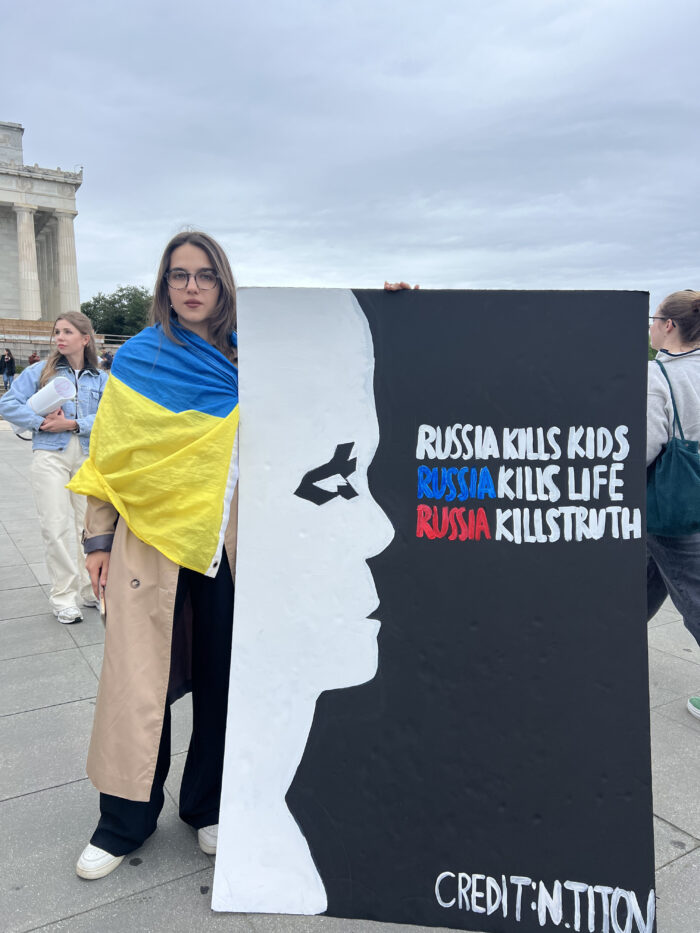 Photo by Sophia Jacome
Photo by Sophia Jacome
“We are here together with Ukrainians and Americans who helped to support our public values, freedom, democracy, and justice,” Hlyten said. “We want enduring peace for Ukraine, and we just wanted to remind the public about that. It is really important right now to support Ukraine and not evil. Peace on Russian terms is no peace at all. That’s our message.”
For the Georgetown community, the summit was both about Ukraine and a way for students to continue the legacy of Andrii Sendziuk (MSB ’24), a Georgetown student who passed away in 2024. Sendzuik was the founder and president of GUUS and spearheaded the first Georgetown Student Action Summit.
“The vision for the summit was created by Andrii. He’s not with us anymore, but we really wanted to continue his legacy and continue the work that he’s done and all the foundation that he has laid for us,” Hustul said. “He was an enormous force and a light to all of us on campus, and not only within this kind of advocacy sphere or Ukraine sphere, but he was also a dear friend and a fellow of Hoya that we wanted to honor.”
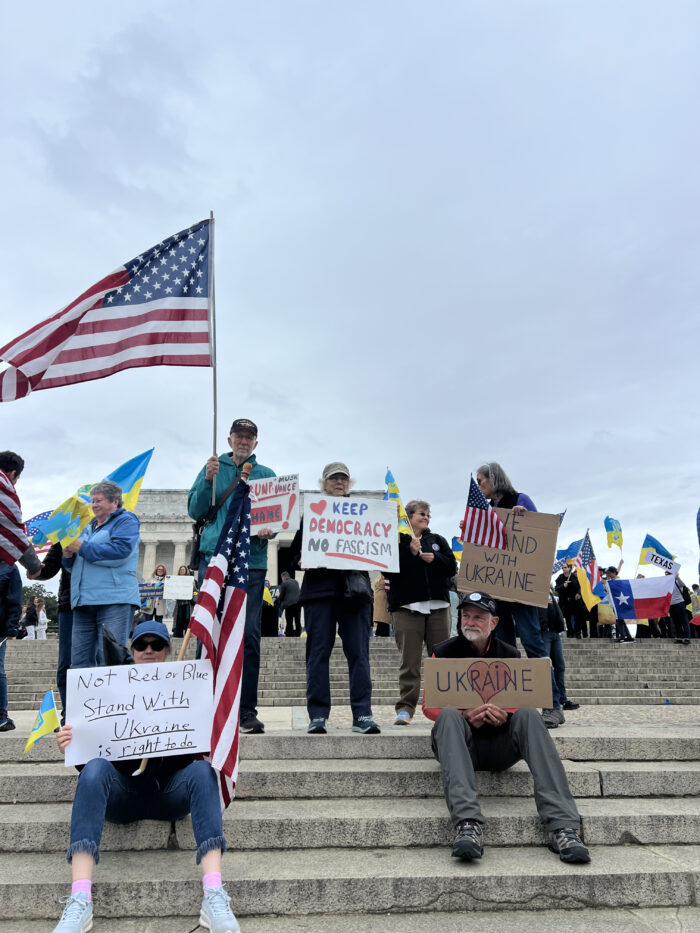 Photo by Sophia Jacome
Photo by Sophia Jacome
Hutsul said that the summit met Sendziuk’s goal by focusing on amplifying student’s voices.
“I hope that students understand that they have a role to play, and that their voice matters, that they can make a change. They can make a difference, whether it’s small, in their personal lives, within their friend groups on campuses or larger campus communities,” Hustul said. “I think anything that there’s something you want to change in the world or society, we have to start from somewhere, and it’s never too small.”


